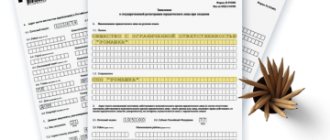What are housing cooperatives and what legal norms are they regulated by?
A housing construction cooperative (HBC) is a form of association of legal entities or individuals whose main goal is the construction and management of housing. In fact, a housing cooperative is a non-profit organization whose purpose cannot be to make a profit, but only to build a house.
Briefly, the work scheme of a housing cooperative can be presented as follows: individuals establish a cooperative, accept members of the housing cooperative, collect share contributions from them, and build a house with the proceeds. After putting the house into operation, all members of the cooperative who have paid contributions in full acquire ownership rights.
The activities of housing construction groups are regulated by several legal acts. These are the Civil Code, the Housing Code and Federal Law-214 “On participation in shared construction...”. In particular, in Art. 116 Civil Code, art. 110 of the Housing Code provides definitions of the concept of housing cooperatives and the norms for registering cooperatives.
Federal Law-214 defines housing cooperatives as the only alternative for shared construction, when future apartment owners transfer money to developers for housing under construction.
The main regulator of housing cooperatives is Federal Law-215 “Law on Housing and Construction Cooperatives”. It contains the procedure for their organization, the rights and obligations of members of the cooperative (shareholders).
The key distinguishing feature of housing cooperatives is that shareholders independently make decisions on the areas of expenditure of contributions made to the general fund. After construction is completed, the housing cooperative is transformed into a homeowners' association (HOA) that manages the apartment building.
Housing cooperatives can operate in two varieties. Standard cooperatives are engaged in the construction of houses, housing and savings cooperatives only accept money from investors, but are not developers themselves, but purchase ready-made real estate.
Competence of the Chairman of the Management Board
3.1. The Chairman of the Board acts on behalf of the housing cooperative without a power of attorney. Management on operational issues of the activities of the housing cooperative is carried out by the Chairman of the Board through his adoption of appropriate decisions, issuing orders and instructions that are mandatory for execution by all employees of the housing cooperative.
3.2. The competence of the Chairman of the Management Board includes resolving all issues and performing any other actions necessary to achieve the goals of the housing cooperative, to ensure its normal operation in accordance with the current legislation of the Russian Federation and the Charter of the housing cooperative, with the exception of those specified in the Charter of the housing cooperative and decisions of the General Meeting of members of the housing cooperative. assigned to the General Meeting of Housing Cooperative Members and the Housing Cooperative Management Board.
The Chairman of the Board has the right to make decisions on issues of the activities of the housing cooperative that fall within the competence of the General Meeting of the members of the housing cooperative and the Management Board of the housing cooperative only after their approval by the relevant management body.
3.3. When performing his duties, the Chairman of the Management Board, among other things, resolves the following issues:
3.3.1. ensures the implementation of decisions made by the General Meeting of Housing Collective Members and the Housing Collective Board, obligations to the budget and counterparties under business contracts;
3.3.2. represents the housing cooperative in court and in relations with government agencies, legal entities and individuals in the Russian Federation and abroad. The power of the Chairman of the Management Board for representation cannot be limited;
3.3.3. makes decisions on filing claims and lawsuits against legal entities and individuals on behalf of the housing cooperative. The Chairman of the Board has the right to independently make a decision to challenge in court or arbitration court, in the manner established by the legislation of the Russian Federation, the actions of citizens, legal entities, government bodies and officials that violate the rights of housing cooperatives;
3.3.4. represents the interests of housing cooperatives without a power of attorney in all Russian and foreign organizations and institutions, in business relations with individuals and legal entities;
3.3.5. determines persons entitled to act on behalf of the housing cooperative and issues powers of attorney to them;
3.3.6. independently manages the funds and property of the housing cooperative, enters into contracts and transactions on behalf of the housing cooperative, and makes other decisions, provided that their size does not exceed the limits established by the Charter, decisions of the General Meeting or the Management Board of the housing cooperative;
3.3.7. makes decisions on obtaining short-term loans;
3.3.8. makes decisions on opening settlement and other accounts in any bank of the Russian Federation for storing funds of housing cooperatives and carrying out all types of settlements, credit and cash transactions;
3.3.9. organizes accounting and cash register of housing cooperatives;
3.3.10. distributes responsibilities between members of the Management Board and his deputies and determines their powers;
3.3.11. determines the composition and volume of information constituting a trade secret of the housing cooperative. Determines measures to organize the protection of information constituting a trade secret of housing cooperatives;
3.3.12. approves the staffing schedule of the housing cooperative. Hires and dismisses housing cooperative employees in accordance with the requirements of the labor legislation of the Russian Federation, determines their rights and obligations, takes incentive measures towards them and imposes penalties.
3.3.13. if members of the Management Board work on the basis of an employment agreement (contract), then the Chairman of the Management Board signs an employment agreement (contract) with each member of the Management Board.
3.3.14. conducts all correspondence on housing cooperative affairs on its own behalf.
3.4. The Chairman of the Board manages the activities of the housing cooperative under his own responsibility.
back to contents
Housing cooperative management
Housing construction cooperatives are formed in the following order:
- An initiative group is being created.
- She prepares the charter of the cooperative and its development plan.
- A meeting is held among the members of the initiative group and a decision is made on the creation of a housing cooperative and its minutes.
- The housing cooperative is registered as a legal entity through the Federal Tax Service at the location of the cooperative . For this purpose, a set of documents is formed: state duty, minutes of the meeting, charter and other documents.
The housing cooperative includes both ordinary members and the board of the cooperative, who share responsibility among themselves.
The management of housing cooperatives is carried out strictly on the basis of the approved charter. This document is important for the work of the cooperative, and the requirements for it are regulated by the provisions of Art. 116 Civil Code and Art. 112 LCD.
In particular, the address of the housing cooperative and information about what this cooperative does and the purpose of its formation are indicated here. The charter specifies the management team of the housing cooperative and its competence: what decisions management can make without holding a meeting, and what is the general procedure for making decisions in various situations (if they are adopted unanimously or adopted by a majority vote).
From 2021, all housing cooperatives must place in the public domain settlement documentation , documents on the right to a land plot for development, voting reports and an auditor’s conclusion. The board of housing cooperatives is obliged to elect an auditor for a period of 3 years. He will conduct scheduled inspections of the cooperative’s activities and report on budget expenditures to its members.
Competence of the Housing Insurance Company Board
4.1. The board of the housing cooperative resolves all issues within its competence in accordance with the legal acts of the Russian Federation, the requirements of the Charter or decisions of the General Meeting of the housing cooperative.
4.2. The following issues fall within the competence of the Board:
4.2.1. convening annual and extraordinary General Meetings of members of the housing cooperative;
4.2.2. approval of the agenda of the General Meeting of Housing Cooperative Members;
4.2.3. submitting the following issues for decision to the General Meeting of Housing Cooperative Members:
— on the reorganization of housing cooperatives;
- about liquidation;
— on the composition of the liquidation commission;
— on changes and additions to the Charter of housing cooperatives;
— on the amount of remuneration and compensation paid to members of the Audit Commission and on the amount of payment for the services of the external auditor;
4.2.4. preliminary approval for submission to the General Meeting of annual reports, balance sheets, profit and loss accounts of housing cooperatives and distribution of profits and losses of housing cooperatives for the past financial year;
4.2.5. preparation of internal documents of housing cooperatives that determine the procedure for the activities of management bodies;
4.2.6. determining the development strategy for housing cooperatives;
4.2.7. approval of contracts, transactions or other property decisions concluded on behalf of the housing cooperative, both with state institutions and enterprises, and with other legal entities and individuals, the size of which exceeds the powers of the Chairman of the Board established by the provisions of the Charter of the housing cooperative;
4.2.8. making a decision on obtaining long-term loans for housing cooperatives;
4.2.9. making decisions on the supply of products, performance of work and provision of services on credit with the consumer paying interest for the use of borrowed funds, including the receipt and issuance of bills of exchange;
4.2.10. selection of suppliers and consumers of housing cooperative products. Determination of the procedure and conditions for the sale of products;
4.2.11. approval of the procedure for foreign economic activity of housing cooperatives;
4.2.12. approval of rules of procedure and other internal regulations governing relations within housing cooperatives;
4.2.13. determining the amount of payment for copies of documents provided to members of the housing cooperative.
4.2.14. consideration of applications from individuals and legal entities to join the housing cooperative and making a preliminary decision;
4.2.15. making a preliminary decision on the exclusion of a member of the housing cooperative from the housing cooperative;
4.2.16. determining the procedure for providing members of the housing cooperative with information about the activities of the housing cooperative, open to public review in accordance with the requirements of the Charter and internal regulations of the housing cooperative:
4.2.17. if necessary, decides to reduce staff.
back to contents
Membership in the housing cooperative: rights and obligations of its members
According to Art. 111 of the Housing Code, individuals over the age of 16 and legal entities can become members of the cooperative. The number of members of a cooperative cannot be less than 5, otherwise it will be liquidated.
The maximum number of shareholders in a housing cooperative cannot be greater than the number of apartments in the building. Only one person pays the share of the apartment. But he can transfer his share to other persons after acquiring and registering ownership.
The rights and obligations of shareholders are specified in detail in the charter of the cooperative. But in general, the list of rights includes:
- Obtaining the full range of necessary information about the activities of housing cooperatives.
- Influencing the progress of construction through participation in the general meeting to vote on issues put forward for discussion.
- Study documents on the activities of housing cooperatives that are in the public domain, and thereby monitor the activities of the cooperative.
- Resign from the membership of the cooperative at any time , unless the charter is violated.
The responsibilities of shareholders in housing cooperatives boil down to the need to pay share contributions, utilities, taxes and other obligatory payments on time, as well as cover any losses through targeted contributions. They must also obey the decisions of the general meeting, even if the participant’s opinion contradicts the majority.
Competence and powers of the executive body of the housing cooperative
2.1. The competence of the executive body of the housing cooperative includes the resolution of all issues that do not fall within the competence of other management bodies of the housing cooperative, as defined by the Charter of the housing cooperative.
The general meeting of members of the housing cooperative may decide to transfer part of the rights belonging to it to the competence of the executive body, with the exception of issues referred by law and the Charter of the housing cooperative to the exclusive competence of the General Meeting of members of the housing cooperative.
2.2. The executive body independently disposes of all affairs, property and funds of the housing cooperative, with the exception of cases that, according to the regulations of the Charter of the housing cooperative, constitute the exclusive competence of other management bodies of the housing cooperative.
2.3. Issues within the competence of the General Meeting are resolved by the executive body only after their appropriate approval.
2.4. The executive body does not have the right to delegate the powers granted to it by the HGC Charter and these Regulations to other individuals and legal entities, unless otherwise expressly established by a decision of the General Meeting of HGC members.
2.5. The executive body has the right:
— attract on a contractual basis and use financial resources, property and individual property rights of citizens and legal entities;
— make decisions for carrying out foreign economic activities;
— make decisions on the acquisition of resources on the domestic and foreign markets for goods and services;
— enter into agreements for the purchase of buildings and structures for housing cooperatives, the rental of warehouses and other production and administrative premises;
- transfer on a contractual basis the material and monetary resources of the housing cooperative to other legal entities and individuals both within the Russian Federation and abroad, producing products or performing work and services for the housing cooperative;
— use economic, scientific, technical and legal support.
2.6. The executive body makes expenses according to estimates annually approved by the General Meeting of HBC members. The General Meeting has the right to determine up to what amount the executive body can spend funds in excess of the estimated purpose in urgent cases, with responsibility to the General Meeting for the necessity and consequences of this expense. Each of such cases is considered and approved by the nearest General Meeting.
2.7. The competence of the executive body is distributed between the Chairman of the Board and the Management Board of the housing cooperative in accordance with the provisions of the Charter of the housing cooperative.
back to contents
Responsibility of members of the executive body of the housing cooperative
7.1. Members of the executive body perform their duties on the basis of the provisions of the HGC Charter, decisions of the General Meeting, these Regulations and agreements (contracts) concluded with them.
7.2. Members of the executive body bear responsibility, including criminal liability, in accordance with the current legislation of the Russian Federation, for:
— improper execution of concluded contracts;
— unreliability of information contained in the annual reports and balance sheets of housing cooperatives;
— violation of property rights of other entities;
— violation by housing cooperatives of the provisions established by environmental protection legislation;
— failure to comply with safe working conditions;
— sales of housing cooperatives to consumers of products that cause harm to health.
7.3. Members of the executive body, when exercising their rights and performing their duties, must act in the interests of the housing cooperative, exercise their rights and fulfill their duties in relation to the housing cooperative in good faith and reasonably.
7.4. Members of the executive body are liable to the housing cooperative for losses caused to the housing cooperative by their actions, including failure to perform or negligent performance of their functions, illegal orders, exceeding the limit of power, inaction and violation of the Housing Cooperation Charter and resolutions and decisions of the General Meetings of members of the housing cooperative.
When determining the grounds and amount of liability, the usual conditions of business turnover and other circumstances relevant to the case are taken into account.
7.5. Responsibility to housing cooperatives of members of the executive body is joint and several. At the same time, members of the executive body who voted against the decision, which caused losses to the housing cooperative, or who did not take part in the voting, which is accordingly documented in the minutes of the meeting of this body, are not liable.
7.6. If a member of the executive body is brought to criminal liability, the General Meeting of members of the housing cooperative may decide to deprive him of his powers.
7.7. The housing cooperative has the right to file a claim in court against a member of the executive body for compensation for losses caused to the housing cooperative in the case provided for in clause 7.3. of this Regulation.
At the same time, demands may be made against members of the executive body not only for compensation for damage caused to the housing cooperative as a result of violation of their duties in full, but also compensation for lost profits to the housing cooperative in the amount of its full and fair market value in the manner determined by the legislation of the Russian Federation.
back to contents







